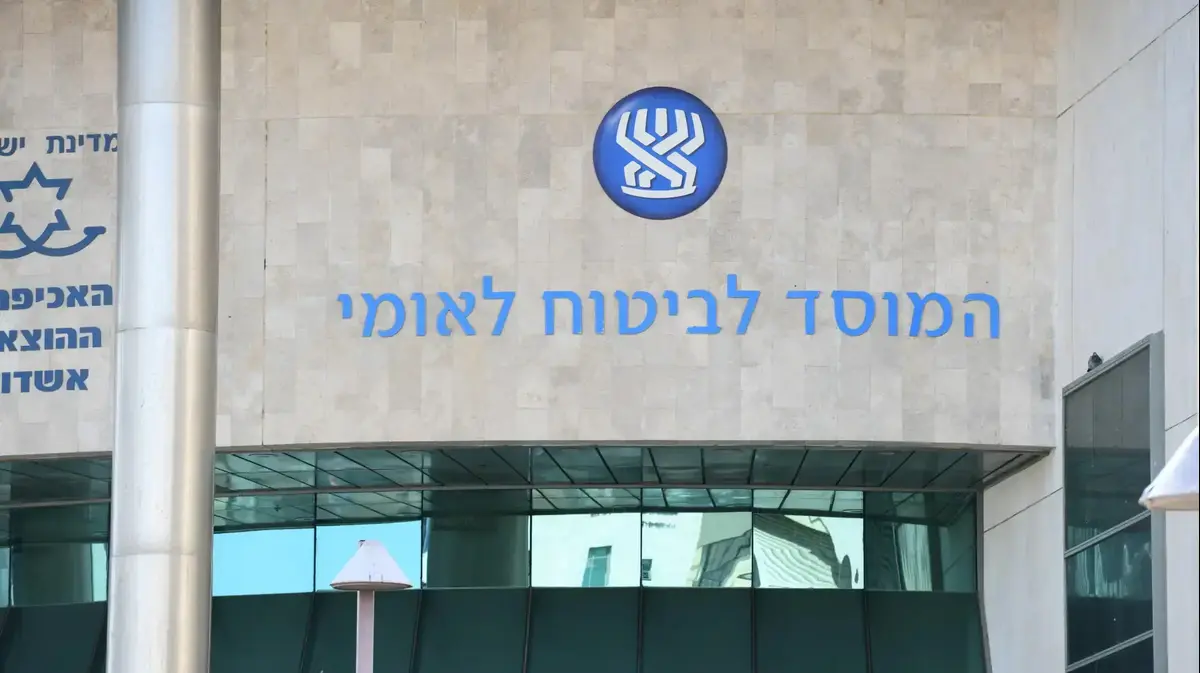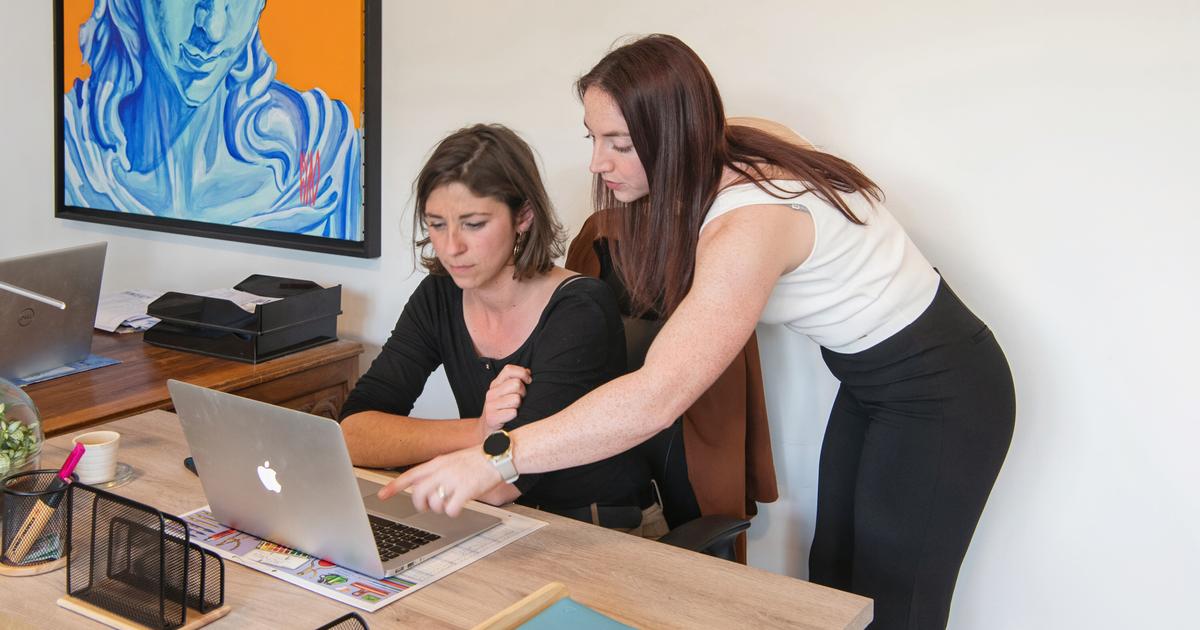Icon: enlarge
Photo: Stefan Albrecht / Biontech / DPA
The world has been waiting for this news, including the world of big money.
Monday lunchtime, 12.45 p.m.: The pharmaceutical companies Biontech and Pfizer announce that their vaccine offers more than 90 percent protection against Covid-19.
The stock exchange prices in Frankfurt, London, Paris and Milan are jerking up, especially the shares of some airlines are taking off, the Lufthansa share alone has at times a plus of more than 25 percent.
Even on the international crude oil exchanges, prices suddenly go up.
In return, gold, the currency in crisis, is becoming cheaper.
The swings in the stocks of vaccine manufacturers are also very strong.
Pfizer: at times plus twelve percent.
Biontech: even plus 26 percent.
At around 1:15 p.m., the Mainz biotechnology company is worth around 23 billion euros - more than corporations like Beiersdorf or Deutsche Bank.
At the turn of the year there were not even 1,000 employees.
But nobody suspected that a new type of corona virus would determine world events in 2020.
Now the BMT162b2 vaccine developed by Biontech and Pfizer could become the main weapon in the fight against the disease.
"Lightspeed" project
The two manufacturers could apply to the US FDA for approval as soon as next week.
The companies expect to be able to provide up to 50 million vaccine doses worldwide by the end of the year - and up to 1.3 billion doses in 2021.
That gives hope.
However, especially in Europe, it could take longer before all those in need get the vaccination.
The fact that Biontech is earlier than all other regular competitors is due to Uğur Şahin and Özlem Türeci.
The Biontech founders, both in their mid-50s, children of Turkish immigrants and married to each other, decided in mid-January to develop a vaccine against Sars-CoV 2.
Although there was not a single confirmed Covid-19 case in Europe at the time.
And although her company had primarily focused on the fight against cancer since it started in 2008.
Icon: enlarge
Biontech founders Uğur Şahin and Özlem Türeci
Photo: Stefan F. Sämmer / imago images
Şahin and Türeci called the new project "Lightspeed".
Their researchers developed potential vaccines very quickly.
There were already 20 candidates when the federal government considered the first shutdown in Germany.
On March 17th, Biontech decided to cooperate with the US pharmaceutical giant Pfizer, which has the know-how and the production facilities to manufacture hundreds of millions of vaccines.
It was the day on which the Robert Koch Institute classified the risk for the population from SARS-CoV2 as "high" for the first time.
On April 23, Biontech and Pfizer started clinical trials;
soon manufacturers focused on two potential vaccines.
Above all, the effectiveness given by Biontech and Pfizer now gives rise to hope: at least 90 percent.
In an interview with SPIEGEL a few weeks ago, Şahin was optimistic that it would be highly effective.
However, few observers assumed such a high value.
The US FDA gives 50 percent as a minimum target for effectiveness - so the vaccine must protect half of the people vaccinated.
In Europe, decisions are made on a case-by-case basis.
The 90 percent is probably related to how many serious infections the vaccine prevents.
To what extent it can prevent infection with the corona virus is currently unknown to the public.
It is likely that BMT162b2 will perform worse here - which means that hygiene, distance and mask rules will have to be maintained for a long time.
However, Şahin is also confident here.
"I believe that vaccines should ideally do two things," he told SPIEGEL.
"On the one hand, to prevent or at least mitigate the disease - on the other hand, also to prevent the transmission of the pathogen from person to person."
His company has not yet presented detailed data on its latest study results; this should be done soon.
Approval in the USA is not the same as approval in Europe.
The European Medicines Agency (EMA) decides here.
Biontech has applied for approval in the so-called "rolling review" process.
The study results are not submitted all at once, as is usually the case, but bit by bit to the licensing authority.
In this way, the EMA can gradually work its way through the flood of data and make faster decisions - but not overnight either.
So it may well be that the FDA will grant approval very soon, but the EMA in Europe not yet.
Extensive purchase agreements have already been concluded
And: approval does not automatically mean availability.
Initially, the vaccines will probably not even be enough for a quick vaccination for all risk groups and medical professionals.
The head of the Paul Ehrlich Institute responsible in Germany, Klaus Cichutek, told SPIEGEL that one could be grateful for any approved vaccine.
"We certainly need the manufacturing capacities of several marketing authorization holders. In addition, vaccines can be indicated for different age or risk groups."
For large parts of the 1.5 billion doses of the Biontech Pfizer vaccine expected by the end of 2021, purchase agreements are already in place - for example with the USA, Japan and Canada.
According to Commission head Ursula von der Leyen, the EU is about to conclude a deal for 200 million cans - with an option for a further 100 million.
The vaccinations should then be distributed according to the population key of the EU.
The more inhabitants, the more a country gets.
But the federal government is also negotiating directly with Biontech and the Tübingen-based company Curveac about additional quantities.
Biontech's BNT162b2 is in pole position.
But other vaccines must follow if large sections of the population are to be vaccinated.
64 active substances, including vaccines, are currently listed by the EMA, the manufacturers of which have contacted the European approval authority.
In addition to the vaccine from Biontech, ChAdOx1-SARS-CoV-2 is currently going through the "rolling review" process: the vaccine that is being jointly developed by AstraZeneca and the University of Oxford.
The deal with Pfizer brings security to Biontech and makes mass production possible in the first place.
But it also prevents the Germans from doing really big business.
Bad business for Biontech?
Pfizer is assuming half of the development costs of BMT162b2 and will pay Biontech $ 748 million if successful.
Analysts expect the two companies to share the income from marketing: an estimated $ 3.5 billion for 2021.
Not a good deal for Biontech, some critics say, a first Covid vaccine could bring even higher yields.
Nevertheless, if BMT162b2 is approved, Biontech will now earn much, much more money than ever before in the company's history.
For a long time, the Mainz-based company had mainly done basic research.
Of the 20 drugs the company had developed up to this year, not a single one had been approved.
Sales were correspondingly low.
But Biontech has patient investors: above all Thomas and Andreas Strüngmann.
The two brothers, who once founded Hexal and sold the generics manufacturer to the pharmaceutical company Novartis in 2005 for around 5.6 billion euros, provided Şahin with around 150 million euros to found Biontech twelve years ago.
Your investment has paid off.
The Strüngmanns are still major shareholders in Biontech through their family office;
Their share is likely to be worth around ten billion euros at the current market price.
Şahin and his team succeeded "within a very short time" in pounding a vaccine out of the ground that works 90 percent, "Thomas Strüngmann told SPIEGEL on Monday." I expect the corona vaccine to end this or Will be available early next year. "
Uğur Şahin, who grew up as the son of a worker at the Ford factory in Cologne, has also become a rich man.
He holds around 18 percent of the shares.
Current value: more than 3.5 billion euros.
Icon: The mirror














